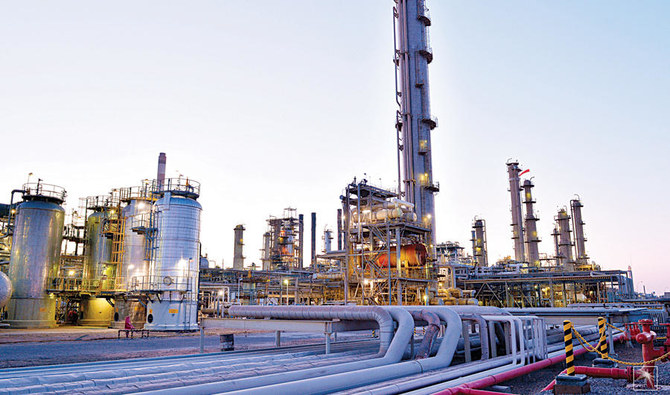DUBAI/RIYADH/JEDDAH: Energy experts said twin attacks on Gulf energy facilities were likely coordinated. Tuesday’s drone strikes on Saudi oil facilities were described by Khalid Al-Falih, the energy minister, as “an act of terrorism and sabotage.”
The early-morning attack, the second this week in the Gulf, was carried out on two pumping stations operated by Saudi Aramco. The Energy Ministry said that one pumping station had been shut down because of fire while evaluation was underway to assess its condition, but said that “Saudi oil production has not been interrupted.”
There was a jump in the price of oil when the attack — which had been announced without detail on a television channel in Yemen sympathetic to Houthis, but later denied by the militia group — was confirmed by the Kingdom. Brent crude rose by about 1.65 percent to stand at around $71.39 at 6:30 p.m. GMT.
Al-Falih said the Kingdom “condemns this cowardly attack, emphasizing that this act of terrorism and sabotage in addition to recent acts in the Arabian Gulf do not only target the Kingdom but also the security of world oil supplies and the global economy.
“These attacks prove again that it is important for us to face terrorist entities, including the Houthi militias in Yemen that are backed by Iran,” he added.
The attack comes two days after four oil vessels, including two Saudi tankers, were victims of “sabotage” off the UAE port of Fujairah. No organization has yet claimed responsibility for that attack, but it has heightened fears of a wider confrontation with Iran in the Arabian Gulf.
A statement from the Saudi Energy Ministry said: “Between 6:00 a.m. and 6:30 a.m., two pump stations on the East-West pipeline were attacked by armed drones which caused a fire and minor damage to Pump Station No. 8. The fire has since been contained. The pipeline transports Saudi oil from the Eastern Province to Yanbu port.”
Maps show a string of Saudi Aramco pumping stations south of Buraydah on the route from the capital to Yanbu.

Despite the damage being contained and no interruption to oil supplies, energy experts highlighted the potential seriousness of the attacks.
The US-based energy consultant Ellen Wald, author of “Saudi Inc.,” told Arab News: “The East-West Pipeline transports about 5 million barrels of oil per day from fields in eastern Saudi Arabia to the Red Sea port of Yanbu. It is a very important alternative route for oil exports that allows Aramco to bypass the Strait of Hormuz … which Iran has threatened to close.
“In fact, Aramco plans to expand the pipeline’s capacity in the coming years. The drone attack reveals the 1,200 km pipeline’s vulnerability … oil prices are understandably climbing as a result,” she added.
David Hodson, managing director of Dubai-based energy consultancy BluePearl Management, said: “The terrorist attacks in the UAE and Saudi Arabia in the last two days on the oil and gas industry are very disturbing and alarming. It is difficult to believe they are not related and coordinated given the timing of these events and their concentration on the regional oil sector.
“It is an ominous security concern to see how to adequately protect the extensive and diversely located oil and gas infrastructure whether in the Kingdom or elsewhere in the region,” he added.
Robin Mills, chief executive of Qamar Energy, a Dubai consultancy, said that the pipeline marked an “odd” target.
“Pipelines are quite easy to repair. But this and the Fujairah incident threaten … Saudi export routes,” he said. “So far it is just a threat rather than a danger.”
Independent energy expert Anas AlHajji tweeted: “The attack on pumping stations … is significant. It reflects the realization that these pipelines replace the passage through the Strait of Hormuz. In other words, these pipelines reduce Iran’s ability to influence oil flow in the Strait.
“The attacks on ships on Sunday and the attack on pumping stations today indicate one thing: The planners chose the weakest spots. Therefore, it cannot be the work of a few angry people,” he added.
Before the attack in Saudi Arabia was confirmed, Al Masirah, a Yemen TV channel alegedly run by the Iran-aligned Houthis, said the militia had launched drone attacks on Saudi installations, without identifying the targets or the time of the attacks. Bizarrely, that claim was later retracted, with the Houthis saying the attack was launched from within Saudi Arabia, according to Al Arabiya television.
Analysts have been increasing their forecasts for oil prices in light of the increased regional tension, despite threats to global economic growth due to the US-China trade row.
Hodson said: “These attacks … are likely to push oil prices in a slightly higher direction but probably not that much unless additional and larger attacks take place.”


























